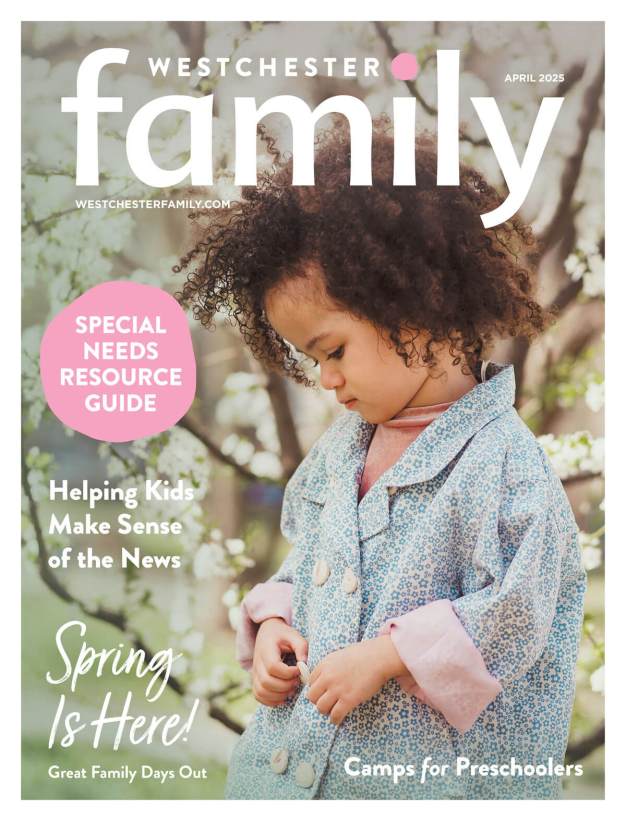When it comes to de-cluttering it seems like a never-ending task. After a big move, a lifestyle change or family addition, we are always surrounded by stuff we need to sort out. Experts say the warmer months can be a perfect time for a cleanup. “Absolutely! It’s rejuvenating and it’s a wonderful time to clean out and go through items,” says Leslie Josel of Order Out of Chaos.
Kristin Price of Mindful Order employs the use of Feng Shui with her clients and says her company is about practicing mindfulness when it comes to changing habits and dealing with clutter. “I ask them are they ready to do the work and ready for a change?” She says families should think about what area is most important to get organized and will give you the biggest return on your effort. For instance, if a messy kitchen is not allowing you to prepare healthy meals and have a sit down dinner, clearing the clutter there makes the most sense.
Hiring a professional organizer to help you do the job is an option. Rates start at $85 per hour with some companies requiring a minimum. A professional organizer can help you design systems and show you how to maintain the order that they helped you set up.
PREPARE
Get all the items you’ll need together before you start the process. You should have garbage bags, markers and labels ready, so you don’t have to stop halfway through the project. Josel says once you determine what you want to organize then Basement Clear out items not in use Set up three boxes for sorting: garbage, donations and maybe Put similar items into activity zones Use organizing systems after measuring the space and deciding what to store Kitchen Throw out food with expired labels Appliances on counter tops should only be those you use regularly Zone like items together Ensure that counters are clear for cooking and tables for eating Buy drawer organizers Use two-tiered shelving in cabinets Donate items that are good but you will not use to a food pantry. This includes duplicates of items that you will most likely not use by the expiration date. Bathrooms Toss any medicines with expired dates Keep only current bath products Discard outdated makeup Put bulky items in cabinets or store just a small amount there, i.e: toilet paper and tissues Install a shower shelf or caddy “break down the steps.” For example, if you want to clean the basement, it’s more effective to say, “Let’s go through the board games” than just “Let’s clean the basement.”
SORT
Experts agree the basic principles of organizing are the same, sort the like items, put all items in a zone, assign a space for them and put them in a container. “Sort with no thought at this stage,” says Price. You’ll notice the duplications and the damaged items, which can be discarded as you move to the next step. After the sorting is done, make a decision for each item; keep, give away, dispose or donate.
Zoning means just that, putting all the items you use for a certain task together in one place. This is especially useful for shared family spaces.
Josel says the “assign a home” step can be tricky for some, “most people assign by fit not by use.” You have to put items together in a place that’s readily accessible for it to work.
Price says the first three steps are important before getting to the fun – shopping for containers. “One of the biggest mistakes people make is buying the containers before they’ve done the inventory.” Organizers recommend using clear containers, especially for children and labeling the front and sides. “People don’t use what they don’t see,” says Price.
Here are some guidelines for the most disorganized areas.
Garage
- Toss broken items or obvious junk
- Donate items not in use
- Use vertical storage to keep things off the floor
- Group items by task
- Use clear plastic bins instead of cardboard boxes
Basement
- Clear out items not in use
- Set up three boxes for sorting: garbage, donations and maybe
- Put similar items into activity zones
- Use organizing systems after measuring the space and deciding what to store
Attic
- Label and store like items together
- Store dishes, decorations, housewares and clothing here
- Don’t store blankets, stuffed animals and leather goods because of extreme temperatures
- Only store a limited amount of keepsakes and memorabilia
Bedroom Closets
- Empty closets
- Discard clothing if you haven’t worn it in two years
- Try on clothing and throw out or donate items that don’t fit
- Recycle wire hangers and replace them with wooden or plastic
- Donate gently used items
Home Office/Paperwork
- Toss anything out of date
- Group similar items
- Choose a filing system you like
- Switch to online banking and bill paying to reduce your paperwork
- Sort mail daily and trash junk mail immediately
- Make decisions about papers as they cross your desk
Bathrooms
- Toss any medicines with expired dates
- Keep only current bath products
- Discard outdated makeup
- Put bulky items in cabinets or store just a small amount there, i.e: toilet paper and tissues
- Install a shower shelf or caddy
Playroom/Family Room
- Discard old or broken toys
- Get children involved in deciding what toys and games to keep and which to donate
- Set up storage that kids can access
- Go through school artwork monthly and keep only the best
Kitchen
- Throw out food with expired labels
- Appliances on counter tops should only be those you use regularly
- Zone like items together
- Ensure that counters are clear for cooking and tables for eating
- Buy drawer organizers
- Use two-tiered shelving in cabinets
- Donate items that are good but you will not use to a food pantry. This includes duplicates of items that you will most likely not use by the expiration date.
Be sure to donate any unwanted items that are in good condition. There are several charities that will take your gently used items and some will pick up items at your home. If you have many items that can’t be reused contact junk removal specialists that take away everything else. Having a home for everything is the key to organization, and eliminating the opportunity for clutter will maintain order in the long run.
Karen Roberts is a freelance writer and reporter based in Nyack, N.Y. She was so inspired by the topic she organized her home from top to bottom. Anyone want a slightly used treadmill?
Have a Garage Sale!
If you have the time, some extra hands and are comfortable with selling, a garage sale is a great way to get rid of unwanted goods and make a little cash. Here are some tips for the process.
- Place signs in your neighborhood advertising the sale, including address, date and time. Use social media when appropriate.
- Label everything with a price tag. Even if you negotiate with a buyer later you still need a starting point.
- Make sure everything is clean; buyers don’t want to deal with dirt and dust.
- Put large items and highly desirable items up front so people can be tempted by the goods.
- Have a cash box and petty cash of smaller bills and coins for making change.
- Keep the sale area organized as items are sold.
- Have a freebie table because some items just need to go!
- Allow your children to have an area where they can sell their used toys, books and electronics. Children often come with their parents to garage sales and they like to leave with a bargain too!











